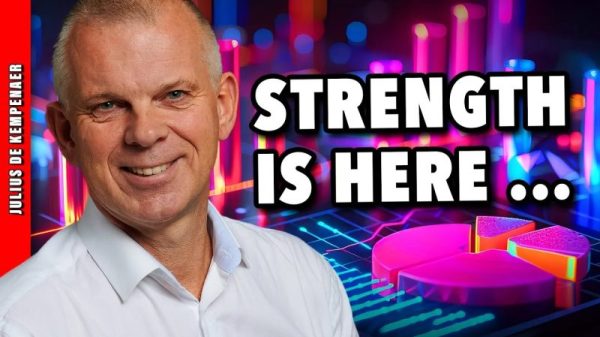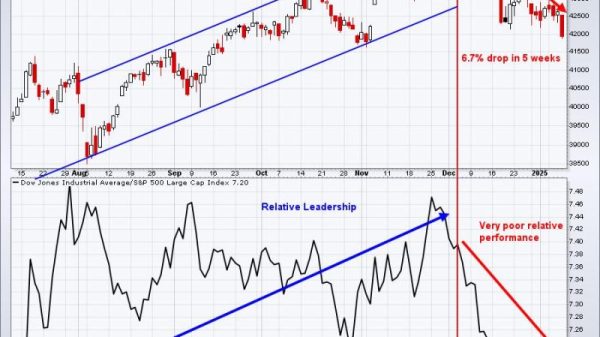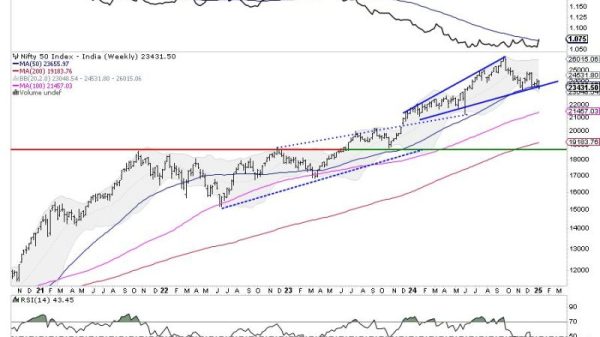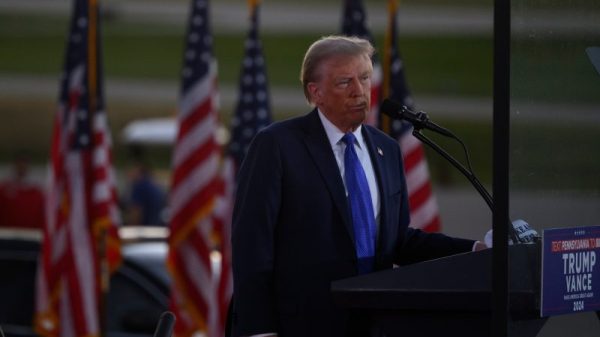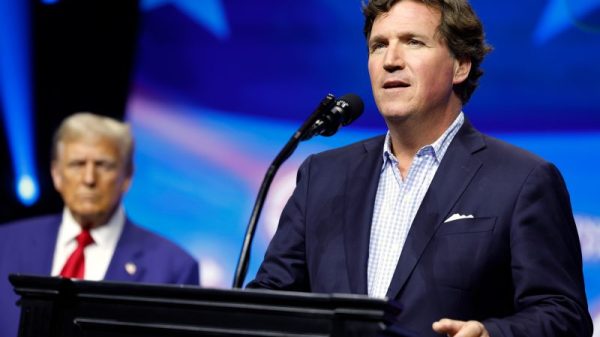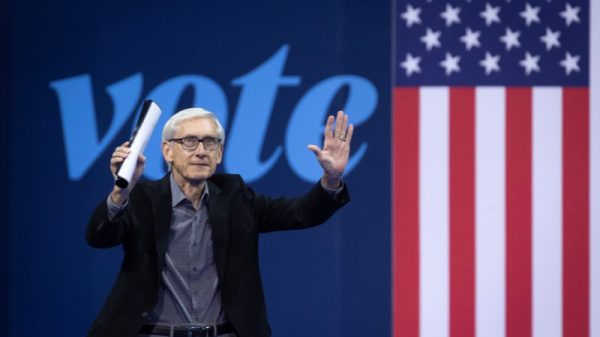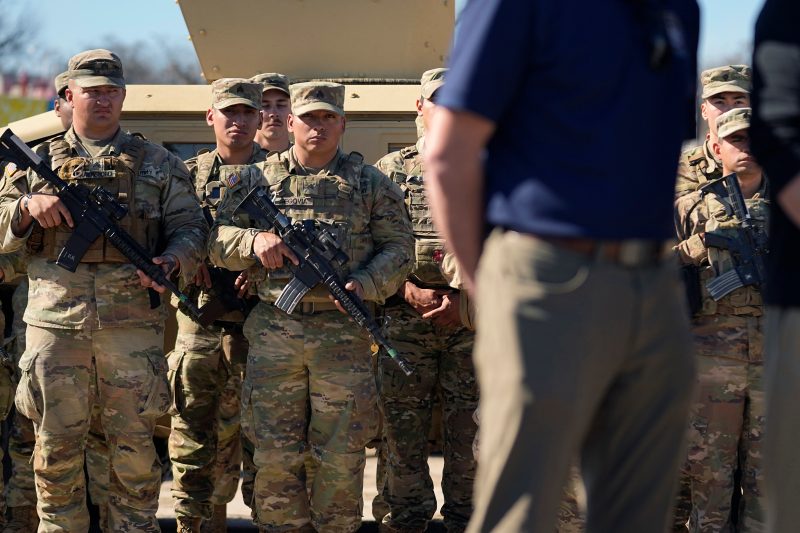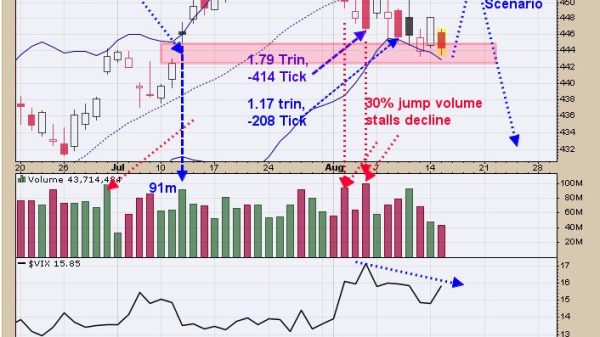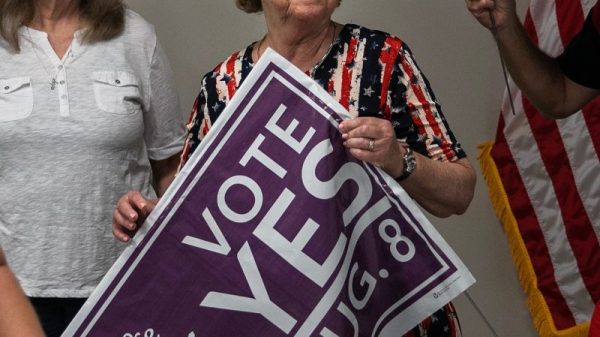Stephen Miller, the immigration hard-liner who has been one of Donald Trump’s longest-serving political advisers, tends to get worked up during his media appearances. Those appearances are generally with sympathetic (if not sycophantic) media outlets, so the combination of his energy and the lack of friction tends to bring Miller’s rhetoric to unexpected places.
In November, Miller joined right-wing personality Charlie Kirk for a discussion on Kirk’s podcast. The title of the podcast began at 80 mph — “Sweeping Raids, Mass Deportations: Donald Trump’s 2025 Plan to Fix the Border” — and things only sped up from there.
As The Washington Post detailed on Tuesday, Miller’s rapid-fire delineation of how a second Trump administration would round up immigrants was largely non-practicable. The conversation had the vibe of two over-caffeinated guys sitting up late at night and talking through their fantasies; experts with whom The Post spoke suggested that, even just from a functional perspective, the ideas were not much more than that.
One of Miller’s theories about how things might proceed generated more than its share of attention. Trump would deploy the National Guard to round up people who are in the country illegally, he said, but would also do so in a way that reduced the guards troops’ homesickness.
“The Alabama National Guard is going to arrest illegal aliens in Alabama and the Virginia National Guard in Virginia,” Miller said. “And if you’re going to go into an unfriendly state like Maryland, well, they would just be Virginia doing the arrests in Maryland, right? Very close, very nearby.”
The image this presents is stark. Virginia Guard troops, presumably in military gear, driving into Maryland to effect arrests of Maryland residents? Maybe the Maryland National Guard could confront them — say, near Antietam Creek? — and the two sides could figure out how power is allocated between their states.
More importantly, though, this fantasy of red-state — or, in the case of Virginia, red-governed-state — troops slipping into hostile neighboring territory makes no sense even within the context Miller offers. The simple fact of the matter is that most immigrants, including those without documentation, live in large cities, cities that are often buried deep inside blue states.
The Census Bureau breaks out American urban areas into “metropolitan statistical areas,” (MSAs) groupings that often mesh large and smaller areas into one cohesive region. The result looks like this in the contiguous United States.
Back in 2019, Pew Research Center published an analysis showing where undocumented immigrants lived in the U.S., breaking out the data by MSA. There have obviously been more undocumented immigrants who have come to the United States since their data were compiled (in 2016), but the data nonetheless gives us a sense of how the population of undocumented immigrants is distributed around the country.
In 2016, for example, more than 1 in 9 immigrants without documentation lived in or around New York City. Another 10 percent lived near Los Angeles. About 5 percent lived in the region around D.C.
You can probably already see the problem. If we color each state by its 2020 vote — blue for Joe Biden, red for Trump — it’s clear that the places with the most undocumented immigrants are heavily Democratic. The exceptions are Florida, Texas and (given the narrow 2020 margin) Georgia.
So we come back to Miller’s “send in the neighboring red-state army” plan. There are National Guard bases scattered around the country, some for the Army National Guard and some for the Air National Guard. Let’s assume that the deployment of Miller’s anti-immigrant forces begins at one of those bases and consider the city with the most undocumented immigrants, New York.
The plan is, what? The Ohio National Guard suits up in Ravenna, in the northeast corner of the state, and drives in their Humvees across Pennsylvania? Pennsylvania state troopers just wave them on as they head east on the turnpike?
And when they get to the Holland Tunnel under the Hudson River, then what? Will they proceed on foot into Manhattan? How’s that going to work?
Even Chicago, which is relatively close to red-state Indiana, would hardly be easy. Imagine Indiana National Guard troops going door-to-door in South Chicago, hunting for people their intelligence suggests might be in the country illegally. This is the plan?
That’s before we even get to California. It’s a long drive from St. George, Utah, to Los Angeles, and you know how L.A. traffic can be.
It’s cosplay. It’s Miller feverishly imagining a world in which Trump — and by extension, he — has complete operational control over armed actors tied to the government. It’s the vanity of Irvin McDowell as he marched the Union troops to Bull Run in 1861.
What would happen isn’t this vision of red-state shock troops blitzing into blue states to rip out immigrant families. What would happen, instead, is that deep-red states, acting with Trump’s blessing and encouragement, would target populations of undocumented immigrants enough to balance the logistical headaches and expense against the political demand for punitive measures.
Which, as The Post reported on Tuesday, would be disruptive and dangerous enough.







